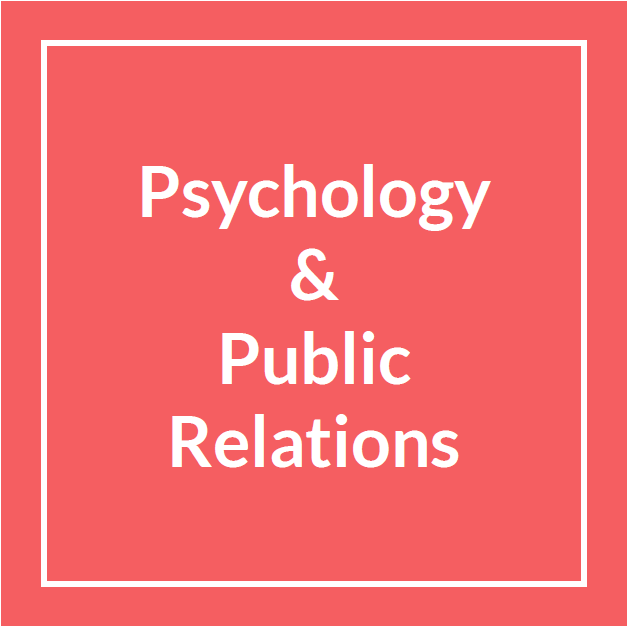La psicologia e le relazioni pubbliche, una nuova laurea

Oggi lezione di Julia Park, studentessa americana dell’Università di Chicago che sta svolgendo un internship nella nostra agenzia, su come è recentemente nata la laurea in psicologia applicata al nostro campo, le relazioni pubbliche. Julia si laureerà in Psicologia tra qualche anno; la commistione di queste due aree, strettamente legate tra loro, è una branca di recente costituzione e negli Stati Uniti rappresenta una novità. Abbiamo già fatto tesoro delle sue parole, sicuramente applicabili a situazioni che ci capitano ogni giorno e non solo in ambito lavorativo.
Spesso la psicologia viene fraintesa, confusa con la psicoterapia, vista come una disciplina relativa solo a problematiche personali. In verità è una materia complessa, che può però aprire porte per moltissimi ambiti nel mondo del lavoro.
Spesso la psicologia viene fraintesa, confusa con la psicoterapia, vista come una disciplina relativa solo a problematiche personali. In verità è una materia complessa, che può però aprire porte per moltissimi ambiti nel mondo del lavoro.
Di seguito il testo inglese firmato Julia Park:
As someone majoring in psychology, many people assume that I want to be a psychologist, social worker, or anything in that line of work. And it’s always fascinating to see people’s reactions when I tell them that I want to be a public relations practitioner. What many people are not aware of is that psychology is a very broad and diverse field. It can be applied to many different career fields such as sales, management, human resources, education, and etc. Psychology is a very big aspect of public relations because both require professionals to make hypotheses regarding human behavior. It’s very important in PR to have the right messages for clients, and psychology assists that process by influencing the behavior of each and every audience.
In America, many people major in communications or marketing to go into the public relations field. But psychology is also a very popular field for those who want to go into PR. Actually, Edward Bernays (labeled as the father of public relations and also one of my biggest role models), was the pioneer to the concept of linking psychology and communications together. As the nephew of Sigmund Freud, he was heavily influenced by Freud and the concept of psychology and human behavior. He knew that this would benefit him in his work in PR, and he was right. He developed some of the most successful PR campaigns in the 20th century and achieved many great things through that.
I also decided to major in psychology because the complexity of the human brain fascinated me. It’s amazing to think that everyone is different, and the way people perceive and experience things are different as well. By studying how people all behave differently and no single person experiences the world the same, it gives me a big advantage in the field of PR. It’s important for PR practitioners to have the right and impactful message to the audience, and using psychological methods helps me reach the audience better.
One of my favorite psychology classes that I have taken at my school was Theories of Personality. The main focus of this course was the four theories: the psychoanalytic theory, the socio-psychological theory, the trait theory, and the self-theory. Using these theories, the course emphasized the different dynamics of human personality and perspectives. The knowledge I have gained in this course has strengthened my skills in PR. Because I became more aware of the variety of the human brain, I focus on every single individual, not just the crowd as a whole. I transformed the things I have learned in psychology to PR by always asking who the audience is, their attitude, how attentive they are, and their ability to remember the message. This helps me to know what is more likely to motivate an individual’s behaviors, and overall be successful in delivering my message to the entire audience.

